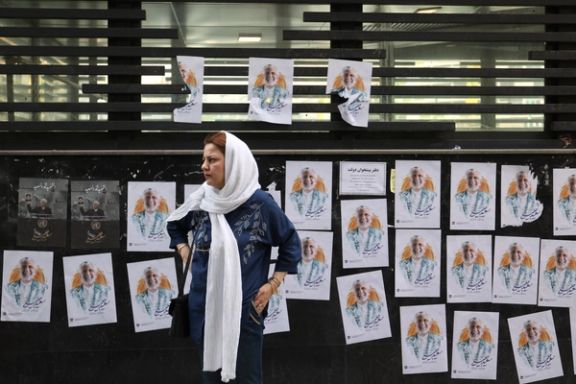The finalists, hardliner Saeed Jalili and a centrist Masoud Pezeshkian, both are seen by many Iranians as regime insiders, who seem unable to garner the trust of the majority.
Mohsen Renani, a prominent professor of economics and commentator, described Iranians' behavior in last week's elections as politically "mature," regardless of whether they chose to vote or abstain.
"Our nation no longer fears, nor can it be easily influenced. It is not swayed by tempting promises of gold subsidies or free housing, as some candidates have offered. Nor is it influenced by the analyses and solicitations of intellectuals, activists, and academics to take political action,” he wrote.
The Iranian nation "acts according to its own discernment, which represents significant progress in our national pursuit of democracy since the Iranian Constitutional Revolution of 1906," Renani wrote earlier this week. "They know when to act and what to do: when to protest in the streets and when to return home, when to remain silent and when to cry out, when to vote and when to abstain."
For the first time, unlike in any previous presidential elections, Supreme Leader Ali Khamenei remained conspicuously silent until Wednesday. When he finally spoke, he did not refer to the election as "an epic," a term he typically uses. Instead, he acknowledged that the turnout was "less than expected." However, he insisted that the low turnout was not due to popular dissatisfaction or opposition to clerical rule.
Turnout dropped to 39.92 percent in the first round according to official figures. This turnout rate was the lowest in the four decades since the Islamic Revolution of 1979. Only 48 percent voted in 2021 elections which set an earlier record of low turnout. Turnout had not dropped to below 59.7 percent since 2005 and had even been as high as 84.8 percent in 2009.
“There is still not too much enthusiasm to vote in the second round or even to discuss it among those who did not vote earlier,” Farhad, 48, an engineer, told Iran International.
“Of the people I know, family and acquaintances, some people are posting stories on Instagram condemning the vote comparing participation in the elections as betrayal of the blood of the victims of the past few years’ crackdowns on protesters. Others say they are voting to save Iran from the total dominance of ultra-hardliners,” he added.
“But there is also the core Jalili supporters who are enthusiastically campaigning for their candidate to win and to make a statement about the legitimacy of the ruling establishment,” Farhad said. “They are all over social media platforms.”
Of the two candidates, only Pezeshkian has unequivocally acknowledged that the low turnout was a result of popular dissatisfaction, calling it a "meaningful message to the government, society, and political groups." He has repeatedly stated in campaign speeches, films, and televised debates that he wants to represent the 60 percent who did not vote.
Rather than denouncing those who participated in the Woman, Life, Freedom protests of 2022-23 known as Mahsa Protests and calling them “rioters” as hardliners do, Pezeshkian has been criticizing the government for violence against Mahsa and others for hijab as he had done in a tweet a day after her death in custody in September 2020.
Pezeshkian’s supporters in the past few days have expressed their support for the Mahsa movement at campaign meetings. At his campaign gatherings including a gathering at Heydarnia Stadium in Tehran Wednesday, his supporters chanted Woman, Life, Freedom.
At the same time, he agreed with denying internet service to people during times of unrest, which the government did in November 2019 when security forces killed at least 1,500 civilians. He has also pledged to fully follow Supreme Leader Ali Khamenei's policies, exhibiting contradictory signals to voters who are highly mistrustful of regime politicians.







